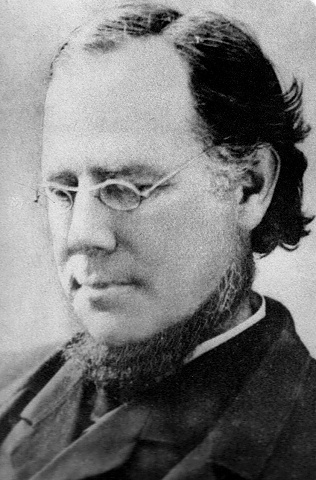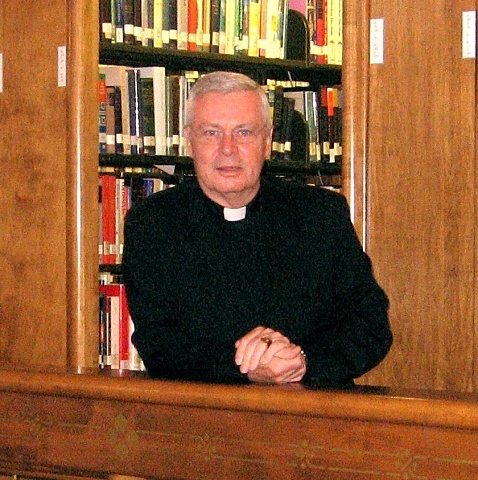October 22, 2012
This is the twenty-sixth in a series of previously unpublished reflections from the 1854 spiritual notebook of Paulist Founder, Servant of God Father Isaac T. Hecker. The reflection series is being made pubic in conjunction with Father Hecker’s cause for canonization. Father Paul Robichaud, CSP, Paulist historian and postulator for Father Hecker’s cause for sainthood, offers a response to Father Hecker’s reflection.

Man is a dependent being and cannot live of himself alone. Without loving something the soul would not exist. To pretend to renounce all consolations and pleasures is to pretend the impossible. When the saints, for example St. John of the Cross, speaks of the necessity of refusing all consolations and pleasures, he means that we must renounce the love of creatures for the love of the Creator; the sensual pleasures of the passions for the spiritual consolations of Jesus Christ the Divine Spouse. And the laws of spiritual life are like the laws of anything else; no one is expected to give up the greater for the less. For unless the superior part of the soul did experience greater ardor for spiritual things than the movements of its passions, she could not overcome the pleasure of which sensual things are the occasion. This is St. John of the Cross, and he says again: “It is necessary that the soul should be embraced with a holy love of her Divine Spouse, so that in placing all her pleasure in her Spouse she may receive the strength and constancy to reject the love of all other objects.

Servant of God Isaac Hecker writes about two interconnected elements of the spiritual life. The first is fundamental to all humanity which is personal relationships. As social beings we live in a network of relationships. We need and often become dependent on each other. Infants need to he held and nurtured and seniors as they grow older rely on others to assist them. Some adults think they can separate and become completely independent. As Father Hecker says this is impossible. We can attempt to live totally separate lives but only to a point. We are constructed to need other persons in our lives. As Father Hecker writes, we cannot live for ourselves alone. Personhood is a part of our spiritual lives as well; for the most important relationship is with the person of God; a relationship we call faith. Father Hecker writes, “Without loving something the soul would not exist.” Just as the Trinity is a community of persons, so as Catholic Christians, our faith is communal. Our relationship with the persons of God serves to bind us together with each other; making us the people of God.
The second is an understanding of prayer that is developed in the writings of St. Theresa of Avila and her disciple, St. John of the Cross. Called a “Mystical Union;” it is the highest degree of mystical life possible in a relationship with God. It is the seventh room in St. Theresa’s classic work on mystical prayer, The Interior Castle; and it is understood that the saint reached this stage of union with God in the last years of her life. There are three stages of prayer that comprise the journey to a mystical union. The first is the prayer of union where the soul is deeply aware of God’s presence. The second is the prayer of ecstatic union where the mystical union between God and the soul grows so that the body falls into ecstasy. The famous Bernini statue of St. Theresa in Ecstasy depicts this stage. Finally in the prayer of transforming union, the soul gives itself to God completely and the soul is completely transformed by God’s love and shares in God’s life as fully as is possible in this life. In a general audience in March 1982, Blessed John Paul II referred to the mystical union as an appropriate prayer form for celibate clergy and religious to practice in support of their vows. Just as Father Hecker understands relationships as fundamental to the human person, so as a follower of St. Theresa of Avila, he understood the highest possible relationship to be with God in a mystical union.
About Father Isaac Hecker’s 1854 Spiritual Notebook:
Servant of God, Father Isaac Hecker wrote these spiritual notes as a young Redemptorist priest about 1854 and they have never been published. Hecker was 34 years old at the time, and had been ordained a priest for five years. He loved his work as a Catholic evangelist. The Redemptorist mission band had expanded out of the New York state area to the south and west, and the band’s national reputation grew. Hecker had begun to focus his attention on Protestants who came out to hear them. To this purpose Hecker began to write in 1854 his invitation to Protestant America to consider the Catholic Church, “Questions of the Soul” which would make him a national figure in the American church.
Hecker collected and organized these notes that include writings and stories from St. Alphonsus Liguori, the Jesuit spiritual writer Louis Lallemant and his disciple Jean Surin, the German mystic John Tauler, St. Thomas Aquinas and St. Jane de Chantal among others. These notes were a resource for retreat work and spiritual direction and show Hecker’s growing proficiency in traditional Catholic spirituality some ten years after his conversion to the Catholic faith. They are composed of short thematic reflections.